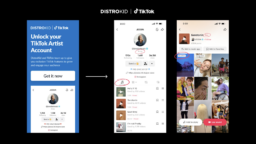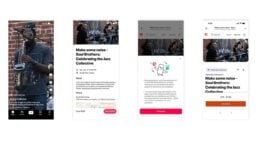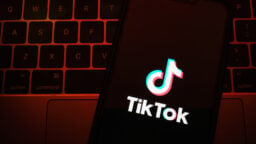TikTok will be banned on public school devices in Florida schools, effective July 1.
That is after Florida Governor Ron DeSantis signed a bill that bans TikTok and other applications from “foreign countries of concern” — on government and educational institution devices in the state.
On Tuesday (May 9), DeSantis signed three bills into law in a bid “to stop the influence of the Chinese Communist Party,” he said in a social media post the same day.
The legislation includes prohibiting land purchases by the CCP, preventing the CCP from influencing the state’s education system and blocking access to CCP-linked apps on government and educational institution servers and devices.
DeSantis claimed the three bills are “the strongest legislation in the nation to date to counteract the influence of the United States’ greatest economic, strategic, and security threat — the Chinese Communist Party.”
The governor first proposed banning TikTok on state and local government devices in February, citing the app’s ties to the Chinese government.
His latest action extends the previously set ban on the use of TikTok in universities in Florida.
Last month, the State University System of Florida Board of Governors banned TikTok and other software, applications, and developers, from use on university-owned devices “due to the continued and increasing landscape of cyber threats.”
“This regulation requires institutions to remove technologies published in the State University System (SUS) Prohibited Technologies List from any university-owned device and to block network traffic associated with these technologies,” Chancellor Ray Rodrigues was quoted by CNN as saying in a memo sent to state university system presidents last month.
Apart from TikTok, that ban also affected Kaspersky, VKontakte, Tencent QQ, WeChat and any subsidiary or affiliate.
Most recently, DeSantis said apps from “foreign countries of concern” including China, Russia, Iran, North Korea, Cuba, Venezuela and Syria, will be prohibited from being downloaded or accessed by employees and officers of “public employers” such as district schools and charter schools.
DeSantis has also tasked Florida’s Department of Management Services to compile a specified list and establish procedures for a specified waiver “to allow designated employees or officers to download or access a prohibited application on a government-issued device.”
The latest ban in Florida marks another setback for TikTok in the US as its parent company, ByteDance, works to lobby the US government to keep its app operating in the country.
Last month, lawmakers in the US state of Montana passed a bill, that if signed into law, would make the state the first in the country to enact a complete ban on TikTok.
In March, TikTok CEO Shou Zi Chew was grilled by lawmakers at a four-and-a-half-hour-long US congressional hearing in which the executive highlighted how an outright ban of the app would “damage” the US economy as TikTok users now account for “almost half” of the US population.
A recent report by Washington DC-based nonprofit organization OpenSecrets revealed in April that ByteDance has spent $13.4 million on lobbying in the US since 2019.
Music Business Worldwide





